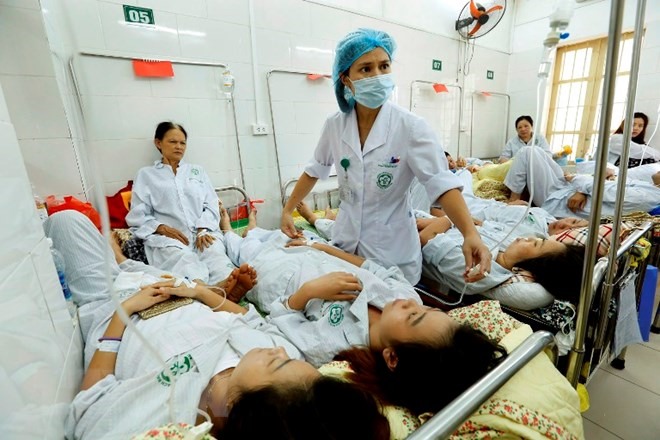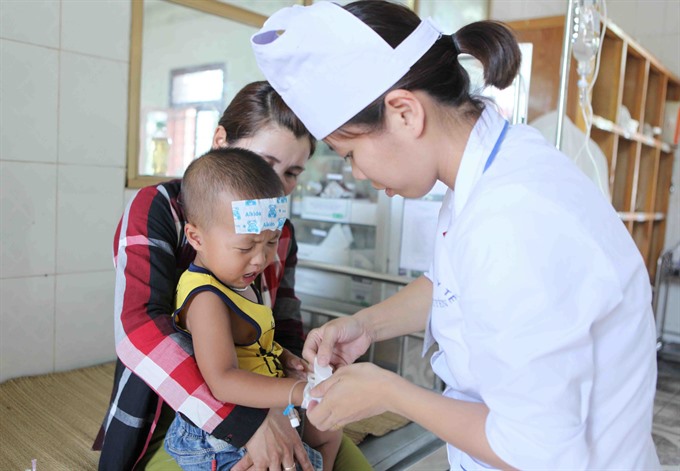 Society
Society

The health sector is trying to strengthen the grassroots healthcare system to improve the quality of primary healthcare and reduce hospital overloading, according to a health official.
 |
| Patients with dengue fever share beds at Hà Nội’s Bạch Mai Hospital. — VNA/VNS Photo Dương Ngọc |
HÀ NỘI — The health sector is trying to strengthen the grassroots healthcare system to improve the quality of primary healthcare and reduce hospital overloading, according to a health official.
Dr Lương Ngọc Khuê, head of the Medical Examination and Treatment Department of the Ministry of Health, said building and upgrading new health facilities and improving the capacity of doctors, especially at the grassroots level, has helped reduce patient overloading at hospitals.
Overloading was being solved step by step, Khuê said, adding that patient satisfaction had been improved.
The results from a recent survey of more than 1 million patients showed the satisfaction rate for inpatient treatment was 75.6 per cent and outpatient treatment was 66.3 per cent.
The Provincial Governance and Public Administration Performance Index (PAPI) also shows people are more satisfied with public health services than in the past.
Patients’ waiting time has also fallen to an average of 48.5 minutes, saving 27.2 million labour days a year.
Overloads at inpatient treatment facilities have reduced dramatically.
In 2016, the rate of patients who had to share bed at the central level hospitals was 16.7 per cent while it was 58 per cent in 2012.
The rate of patient bed sharing at provincial hospitals fell to 11.4 per cent in 2016 compared to 47 per cent in 2012.
“The goal of the health sector is to end hospital overloads by 2020,” Dr Khuê told Tin Tức online newspaper.
 |
| Local doctors in Than Uyên District of the northern mountainous province of Lai Châu treating a baby in the district’s health centre. — VNA/VNS Photo Quý Trung |
Many programmes send doctors of central- and city-level hospitals to improve the capacity of doctors at lower-level hospitals, according to Khuê.
This has helped reduce patient overload at central- and city-level hospitals.
To reduce overloads and improve the quality of medical examination and treatment services, the health sector is also trying to develop the satellite hospital network, apply information technology and transfer technology to lower-level hospitals.
The Ministry of Health also told hospitals under the ministry’s management to pledge that patients would no longer share beds after 24 or 48 hours of being hospitalised.
Most central-level hospitals in Hà Nội and HCM City so far have made the commitment.
Only two central-level hospitals, namely Chợ Rẫy Hospital in HCM City and Bạch Mai Hospital in Hà Nội, have not signed this commitment because overloading still occurs in some departments.
“The long-term solution is to further improve the professional skills for doctors at lower-level hospitals and create trust with patients so the hospital overload will be resolved thoroughly," Khuê stressed. — VNS




